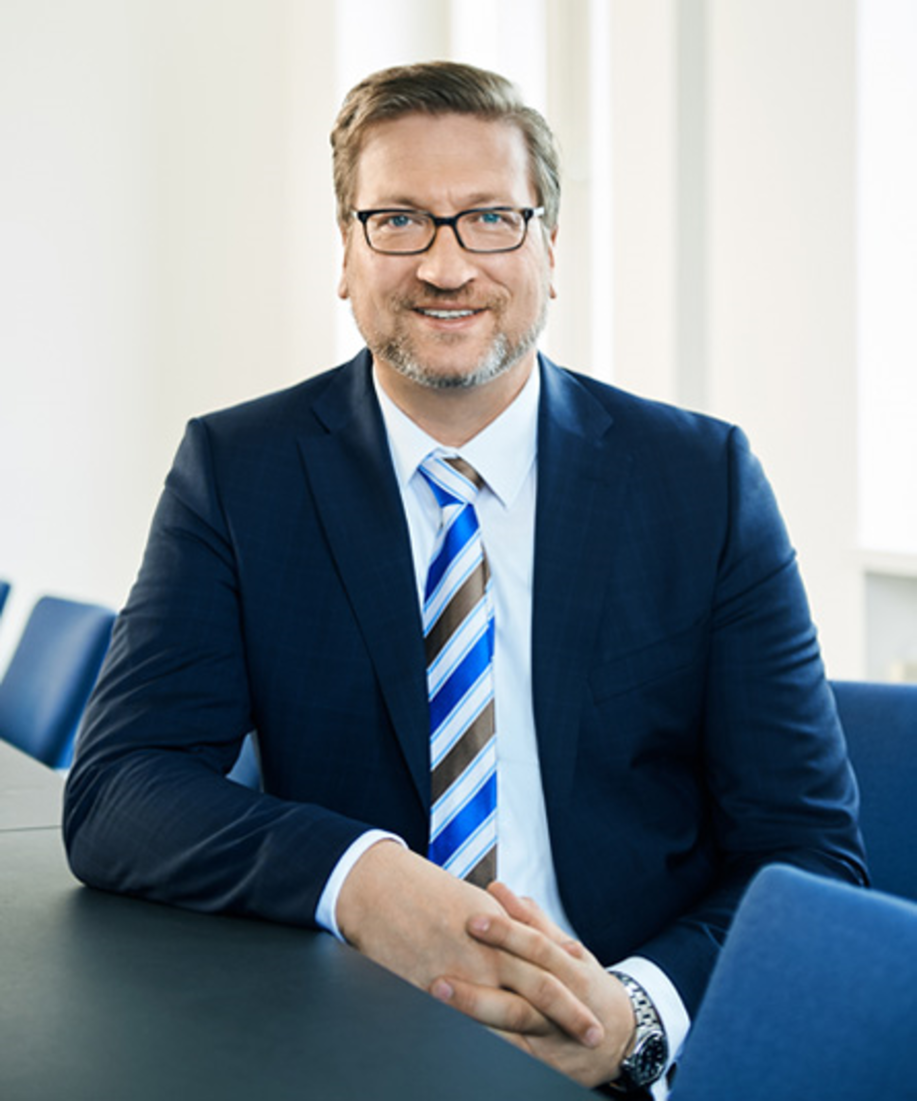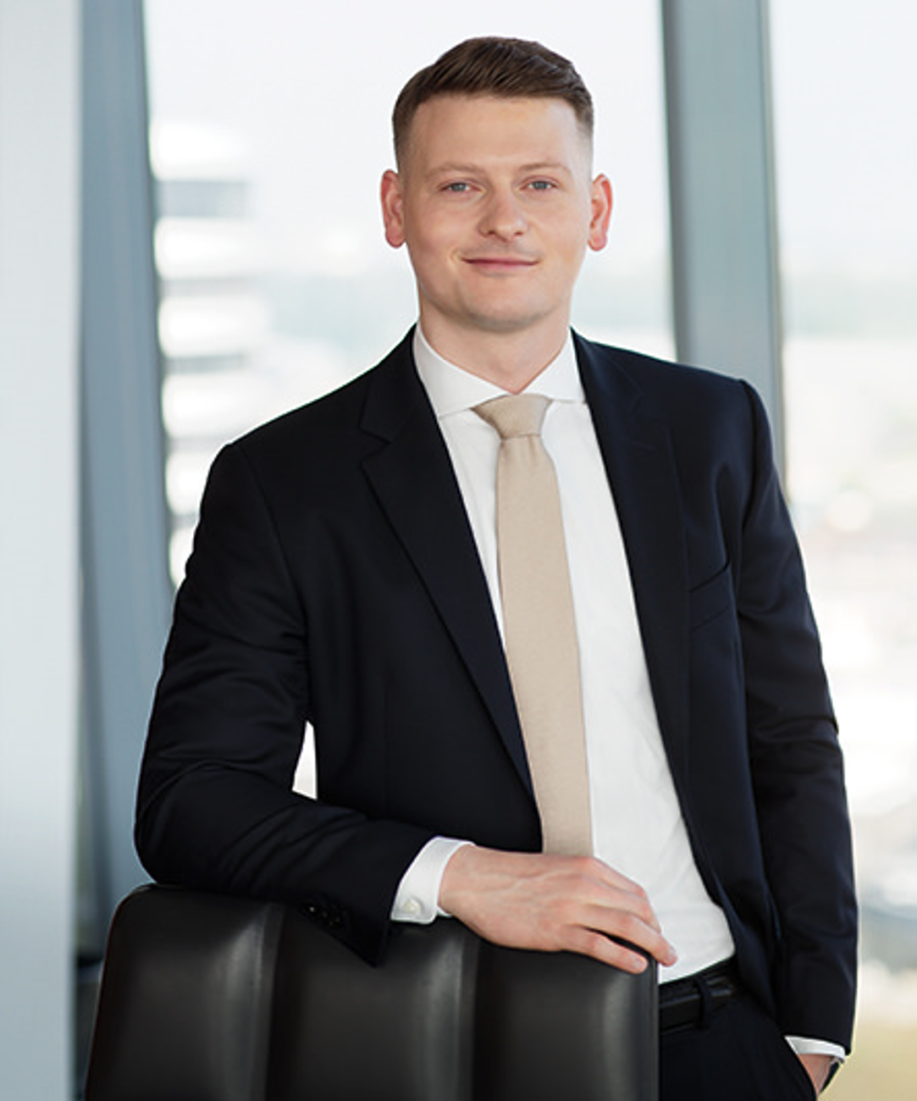
PROUT EMPLOYER Noerr
“The challenge is to make the topic more present, to establish it as a matter of course, and also to increase commitment and visibility. It’s important to make people aware of what’s on offer at an early stage so that new employees are motivated to take part.”
Matthias Stupp is a partner in Noerr’s Hamburg office. He has been advising international companies, family offices and banks in the fields of litigation and dispute resolution since 2002. His main practice areas are commercial, company and banking law. Owing to previous positions in Düsseldorf, Cape Town, New York and Hamburg, Matthias has extensive international experience which he deploys to the benefit of his clients. He is also co-heading the diversity team at Noerr.

“In my opinion, it is the nature of things to stand up as a gay man. Just as I have experienced a lot of support on my way, I also want to support other people. Therefore, it is natural for me to pass on what has been modeled for me.”
Paul Alexander Tophof is an associate in the Düsseldorf office and a member of the employment law practice group at Noerr. He advises national and international clients on all matters of individual and collective employment law. One focus of his advice is in particular on the (strategic) reorganization and restructuring of companies, including the support of related negotiations with works councils and trade unions. He is a member of Noerr’s Diversity Network, where he is particularly involved in the LGBT+ field.
You were immediately ready for a joint interview – thank you again for that! Why is it a matter of the heart for you to support LGBT*IQ?
Matthias Stupp: The matter of the heart is explained by my own biography: how I felt myself, how I would have liked it to be. Creating visibility is important. It is part of the corporate culture and must be lived accordingly. There is no point in older partners or management dictating that “everyone is diverse from today on.” This is a topic where one’s own conviction should be visible – and that should be exemplified. Accordingly, it is necessary to approach the matter with one’s own commitment and to show others: “This is important to us because it is a matter of the heart and not a business case.” This message is important to employees_. For this reason, we build this with them from the beginning. At the same time, we create opportunities for networking.
Paul Tophof: In my opinion, it is the nature of things to stand up as a gay man. Just as I have experienced a lot of support along the way, I also want to support other people. I have already received positive feedback from many law students about how honest I am about my sexual orientation and thus act as a role model for them. Therefore, it is natural for me to pass on what has been modeled for me.
Dr. Stupp, the Noerr Diversity Committee meets regularly under your leadership. Are there any concrete plans for activities in your company regarding LGBT*IQ in the workplace?
Matthias Stupp: Our diversity approach is currently very diverse. The committee is made up of six people, with a wide variety of projects being implemented by smaller groups. We are dedicated to the LGBT*IQ issue with the goal of increasing visibility and bringing the idea of networking more to the fore. We want to achieve this mainly through events and memberships. Another aspect is pro bono work. We are always happy when Noerr can be active in this area and make a difference as a firm. Ultimately, we became lawyers because we want to fight for justice, including for the LGBT*IQ community.
“It’s not as hard as many people think, you just have to dare. Small actions are enough at the beginning. Everyone has a community through which networking is possible.”
Where do you see the challenges to LGBT*IQ diversity at Noerr in the coming years?
Matthias Stupp: One challenge is the visibility and motivation of employees to get actively involved. Due to the natural fluctuation in a company, it is important to draw attention to offers at an early stage so that new employees are always motivated to participate. For example, if there are 50 LGBT*IQ people in a company, only half of them may want to be active. Employees from the assistant area or interns who are only there for three months may not contact us at all or only tell us at the end that they think what we are doing is great. If these people get in touch earlier, we have the opportunity to involve them better. That’s the challenge: to make the topic more present, to establish it as a matter of course, and also to increase engagement.
Paul Tophof: At the same time, I also see this challenge as an opportunity to attract young talent from the LGBT*IQ community in particular. If we create this visibility in the company and show that we are an employer where the topic of LGBT*IQ is very present and highly placed, it is a really great opportunity.
What advice would you give to companies that are still in the early stages of their LGBT*IQ diversity efforts?
Matthias Stupp: It’s not as hard as many people think, you just have to dare. Small actions are enough at the beginning. Everyone has a community through which networking is possible. Most companies do not know whether such a network works, because it is often not clear how many employees are actually LGBT*IQ. However, you shouldn’t let that stop you. In the end, it helps everyone.
Paul Tophof: It also helps to take advantage of the offers from PROUT AT WORK. The experience, the expertise of others to be able to profit from it.
Matthias Stupp: LGBT*IQ lives not only from the people who identify with it, but also from allies. These come to events and report, “I’m not gay, but my brother is.” They relate to it and therefore want to get involved and network beyond that. Bottom line: just do it.
What do you hope PROUT AT WORK will do for you?
Matthias Stupp: The networking idea is in the foreground for us. It’s hard to do everything on your own. That’s why we get help from you, PROUT AT WORK, to tackle the issue professionally. Particularly when it comes to important topics such as gendering, we as a law firm are in the process of finding out how to deal with them correctly. In this situation, PROUT AT WORK is a great support for us with its recommendations: with concrete recommendations that we can give to people. Whether it is then actually implemented in this way is another question. But despite all this, PROUT AT WORK is simply a great pool of ideas. That is precisely what we would like to see.
Paul Tophof: For us, your experience and your knowledge of various event formats, which we can take on ourselves or which we can take on together with you, is also a great support. I often find myself not knowing everything about the various topics. So it is helpful to define these topics clearly for us. That’s why this is also the support we want from PROUT AT WORK.
